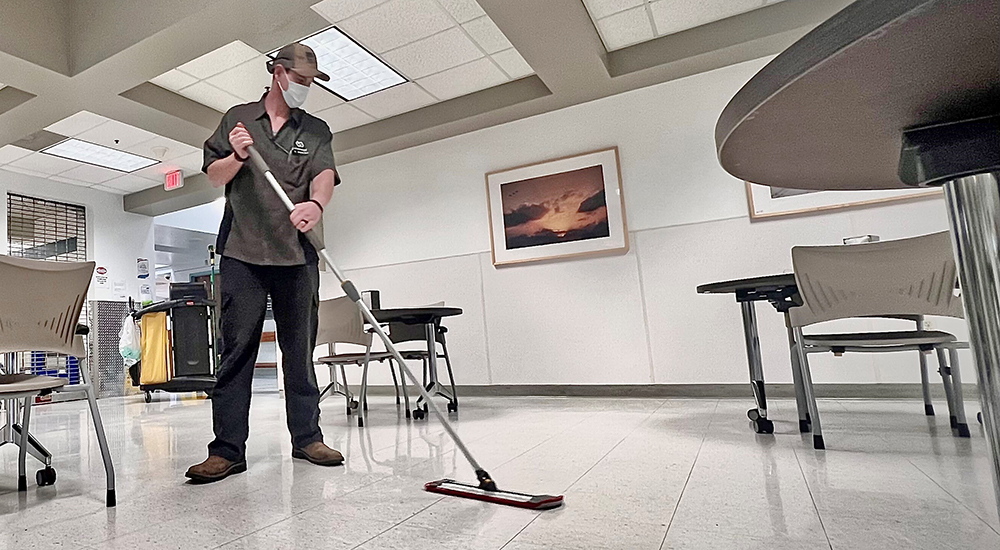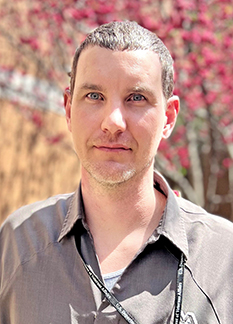Michael McNabb’s substance to sobriety story begins with his service in Iraq. With the help of a supportive Army recruiter, he obtained a GED and was soon an infantryman. Shortly after reporting to his first unit, he was on his way to Tikrit.
Speaking of deployment, he said that “Some days were good and we would go out and do great things, and others were not so good.”
It was after returning home that McNabb struggled to re-acclimate to civilian life. He turned to alcohol to cope with his feelings about himself and his memories, and later began using a synthetic drug.
“It shut off my brain. Everything I wanted to escape from went away,” he said.
Enjoying sobriety since 2014
After several attempts at rehabilitation and multiple altercations with family and law enforcement, McNabb eventually returned to where his VA journey started: the Bonham Domiciliary Residential Rehabilitation Program.
This time it stuck. McNabb has been sober since 2014.
“Something about this place, the people here, especially the peers, [it] helped me overcome some tough times,” he said.
Today, McNabb works as an Environmental Management Service specialist at the Bonham Domiciliary where he helps keep the place clean and helps other Veterans battling substance abuse.
“I’m able to give back and help the people in the same position I was in,” he said. “I’m not going to lie. It’s still a struggle. But now I have tools and resources to help me cope. The best part is I can pass it on. That’s how I can give back to my brothers and sisters.”
McNabb credits his sobriety to the guidance of peer support specialists, the support of his wife, doctors, and the opportunity to help others. But he also emphasized the importance of seeking help and support. He hopes that sharing his recovery journey offers hope for those going through similar struggles.
“There is light at the end of the tunnel. You just have to keep pushing forward,” he added.
To read more stories on substance abuse care and prevention, visit VA News and Information.
Topics in this story
More Stories
Bob Jesse Award celebrates the achievements of a VA employee and a team or department that exemplifies innovative practices within VA.
The Medical Foster Home program offers Veterans an alternative to nursing homes.
Watch the Under Secretary for Health and a panel of experts discuss VA Health Connect tele-emergency care.








Very proud of you, Michael. Many of us have fought those demons after deployments, but we can’t all say we’ve overcome them and offer help to our brothers and sisters to help them overcome it too. I pray for strength that you continue fulfilling your mission and wish you the best. VA should capitalize on your story and recovery and make you a peer support specialist. It seems right.